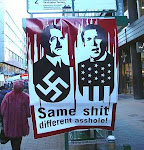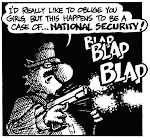Tuesday 07 April 2009
by: Matt Renner, t r u t h o u t | Report

Guljuma, 10, a civilian casualty in Afghanistan. (Photo: Getty Images)
The Securities and Exchange Commission (S.E.C.) has been under fire for failing to protect shareholders from fraud in the wake of the $50 billion Bernard Madoff Ponzi scheme. Revelations stemming from the Madoff debacle showed the S.E.C. failed to properly examine Madoff's dealings and ignored warnings about Madoff for years.
In February, the S.E.C. announced it would take action against the Stanford Group for defrauding investors out of up to $8 billion. Allen Stanford has denied the charges and legal action is ongoing.
On February 17, The New York Times reported "The current S.E.C. charges stem from an inquiry opened in October 2006 after a routine exam of Stanford Group, according to Stephen J. Korotash, an associate regional director of enforcement with the agency's Fort Worth office. He said the S.E.C. 'stood down' on its investigation at the time at the request of another federal agency, which he declined to name, but resumed the inquiry in December 2008."
This revelation caught the eye of Congressman Dennis Kucinich (D-Ohio), who sent a letter to the new S.E.C. Chairwoman Mary Schapiro. In the letter, Kucinich sought to identify who asked the S.E.C. to back off and why.
According to an official with direct knowledge of Kucinich's investigation, the "government agency" which asked the S.E.C. to stand down on the probe was the Department of Justice (DOJ). The official asked not to be named because of the sensitive nature of the information.
It is standard procedure, according to the source, for the DOJ to ask other agencies to hold off when investigations overlap so as not to interfere.
However, a spokesperson for the S.E.C. seems to dispute The New York Times report that the agency "stood down" in the first place.
"The S.E.C.'s investigation was initiated in the spring of 2005 based on information we developed in the course of an examination," an S.E.C. spokesman told Truthout on Monday, adding "The investigation has been active ever since, and has included cooperation with other federal agencies."
While these two versions of the story do not square perfectly, it is clear that the investigation was begun under a Bush administration DOJ and S.E.C., which had a track record of bending to the will of Wall Street. The case was brought to court only after the Obama administration took over and changed the leadership at both agencies.
The lack of aggressive prosecution for white collar crimes has been cited by experts as one most glaring examples of deference to the financial titans which contributed to the ongoing meltdown.
Bill Moyers's recent interview with financial regulation expert William K. Black sheds new light on the level of corruption and fraud that may be involved in the ongoing financial bailouts. It can be viewed here.
Progressive Democrats Try to "Complexify" Debate on Afghanistan Occupation
The left wing of the Democratic Party, which coalesced around opposition to the war policy of the Bush administration, is holding a six-part forum for the public and for Congressional staffers on President Obama's plan for the occupation of Afghanistan.
The 77-member Congressional Progressive Caucus (CPC) has so far held two public discussion panels, which brought together Afghanistan experts in diplomatic service, military, academia and on-the-ground nongovernmental aid organizations.
CPC co-chair Raul Grijalva (D-Arizona) described the forum as "the beginning of a conversation," which is intended to "complexify" the current discussion about the future involvement of the US in Afghanistan and Pakistan by adding nuance and looking at the military, political and social dynamics of the region.
Reports from some of the Capitol Hill newspapers indicate that members of the CPC are split over the ongoing occupation of Afghanistan and Obama's strategy.
Congresswoman Lynn Woolsey (D-California), one of the most outspoken opponents of the occupation of Iraq and co-chair of the CPC, told Roll Call that she is "universally opposed to war. Period."
Her fellow co-chair Raul Grijalva authored an op-ed with Congressman Mike Honda (D-California) embracing much of Obama's strategy to add more troops to the region and become more aggressive militarily. Grijalva and Honda would augment the military buildup with additional infrastructure improvement and economic opportunity building for the citizens of Afghanistan.
The structure of the forum so far fits the varied opinions of the members of the Democratic caucus. Only one of the panelists has advocated an immediate withdrawal from Afghanistan. The others said the country may be able to be stabilized if the Obama administration is willing to spend the money and blood it is going to take, but none were optimistic.
None of the panelists in favor of continuing the occupation could give a timeline or lay out goals or benchmarks that could be achieved which would signal the possibility of withdrawal.
"This budget is a plan that authorizes the expansion of the war. I simply cannot endorse a budget or a plan that sends more of our brave men and women to Afghanistan, a conflict which has the potential to become this generation's Vietnam," Kucinich said in a statement last week after voting against the budget in the House.
Kucinich and Woolsey are the only two members of the CPC who sat through the first panel and asked questions of the experts.
More information about the CPC forums can be found on their web site.
Matt Renner is an editor and Washington reporter for Truthout. He can be reached at Matt@truthout.org.



























No comments:
Post a Comment